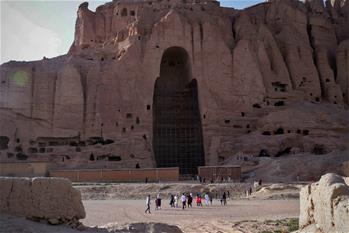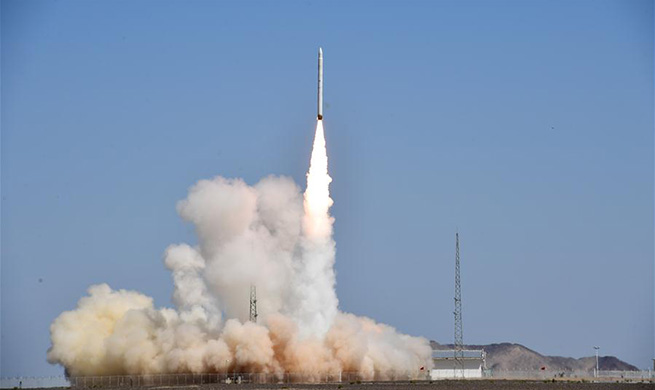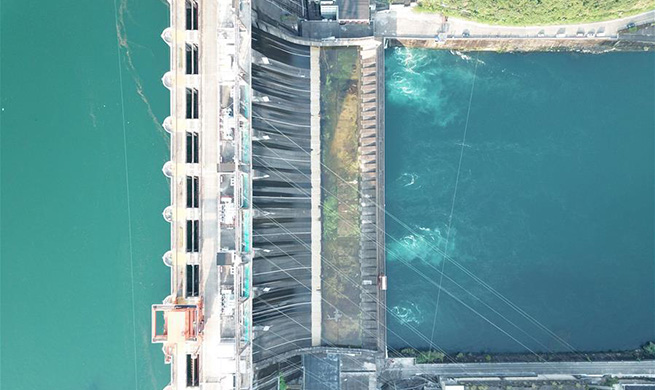By Eric J. Lyman
ROME, Aug. 17 (Xinhua) -- Italy's most important agriculture industry group is sounding the alarm for Italian farmers, saying the extreme weather that gripped Italy so far this summer is likely to become more common going forward and that those working in agriculture should start making adjustments now.
Agricultural association Coldiretti noted that ground temperatures in some parts of Italy hit 50 degrees Celsius (122 degrees Fahrenheit) or more on multiple occasions this summer.
"The high temperatures put plants at risk of heatstroke and water stress that compromise fruit growth on trees, can cook vegetables as they grow, and damage cereal crops," Coldiretti said in a warning to farmers, noting that animals grow slower and produce less milk, hens produce fewer eggs, and bees stay in their combs and make less honey.
In addition to the high temperatures, the country's agricultural sector has suffered from floods in some northern parts of the country, lower-than-usual rainfall in the south, and hail in many areas.
"We are suffering from weather conditions we could not have imagined a few years ago," Lorenzo Bazzana, head of the economic division with Coldiretti, told Xinhua. "Farmers can no longer avoid taking action. This is already happening. Nobody can deny it."
Bazzana said the economic impact of the changing climate and weather patterns is expected to cost farmers around 1 billion euros (1.1 billion U.S. dollars) per year over the next 15 years.
Bazzana said there are two general types of reactions Italian farmers can take: they can change the way they work with the crops and animals they have or they can change the crops and animals they work with. The latter is the more dramatic response, Bazzana said, but it is increasingly being used.
That means growing more tropical fruits like bananas and mangoes, or growing corn and wheat instead of water-intensive crops like rice. Olives, which are predominately grown in southern and central Italy, could start being grown in the northern parts of the country.
Though climate change and severe weather is having an impact across the globe, Bazzana said the changing climate is likely to have a big impact on Italy than in most other countries simply because the agricultural sector is a bigger part of the Italian economy than it is in other major European countries like France, Germany, and the United Kingdom.
Olivero Fiorini, an economist and analyst working with ABS Securities in Milan, said the timing is bad for Italy to begin having trouble with its agricultural sector.
"The agricultural sector is one of the few Italy has been able to count on in recent years," Fiorini said in an interview. "If summers like the one last year and so far in 2019 become more common that will be bad news for the economy because it will lose one of its major motors of economic growth."
Fiorini noted that most models show the economy will contract this year or show a slight economic growth of no more than 0.2 percent compared to last year. He said lower agricultural production is among the factors acting as a drag on growth.













